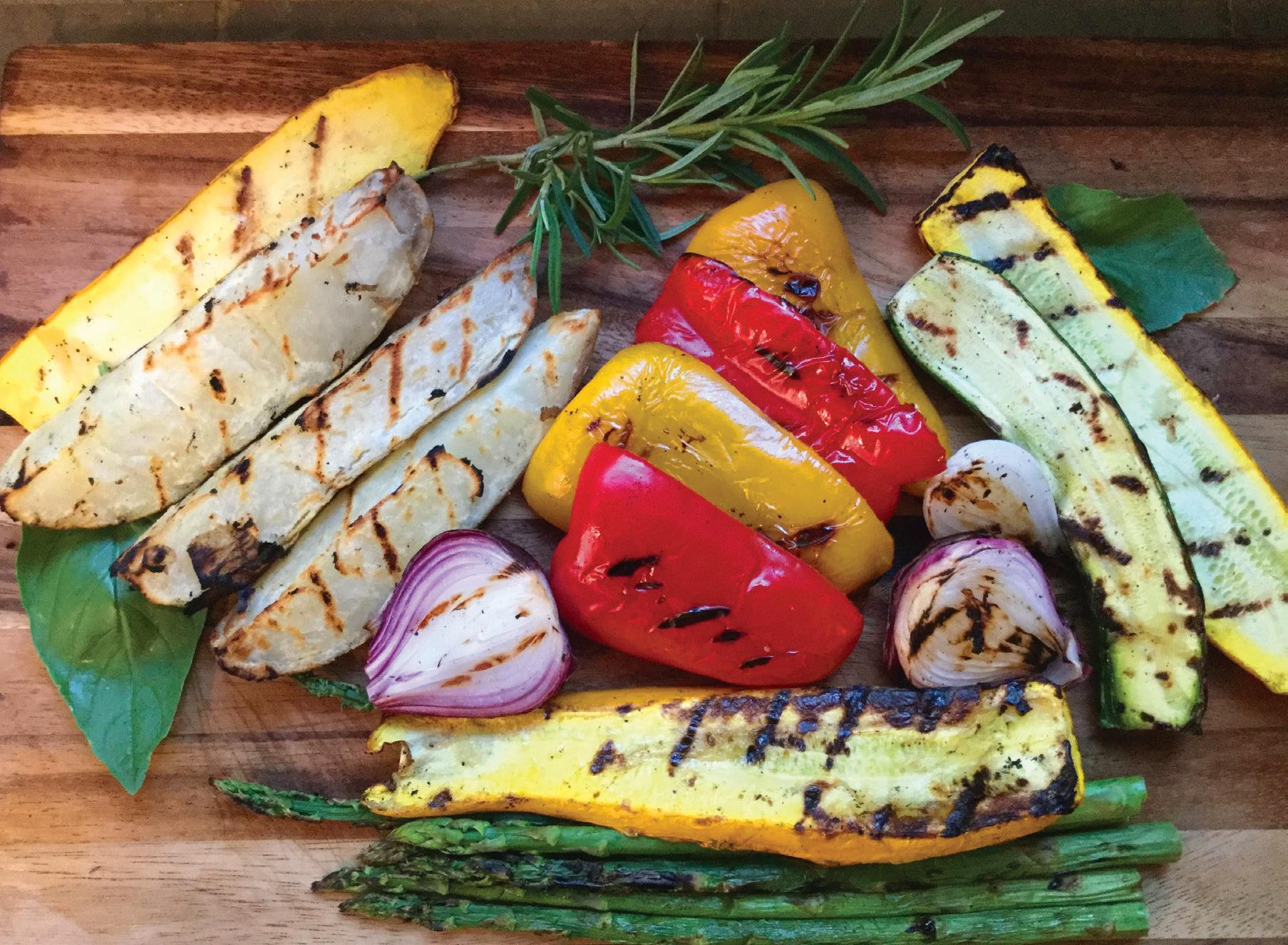[ H E A LT H Y E AT I N G ]
GARDEN GRILLING by Betsy Bruns
I’ve never had much of a green thumb— more like a brown one. Although it’s my mission to inspire others to eat more plants, I’m much more comfortable in the kitchen than in the garden. This year, a friend planted a small garden for my husband and me. Perhaps now I’ll grow a green thumb. We’ve been able to harvest kale and are anxiously waiting for the brussels sprouts, tomatoes and zucchini to come in. 18
| CONSCIOUS COMMUNITY MAGAZINE AUGUST 2020
We are also back to grilling more often. For some reason, we abandoned our grill for a time, but we’re back to firing it up regularly now, and I look forward to grilling our harvests from our little garden one day soon. The truth is most of us are not grilling enough vegetables. Throwing veggies on the barbie is one of the best ways to cook them. The high, dry heat means less cooking time, or nutrients lost in water,
preserving more of the good stuff that makes them so healthy. Grilled vegetables, unlike meat, don’t become toxic from the cooking process. When meat is grilled, a chemical reaction occurs and heterocyclic amines (HCAs) are released. HCAs form when amino acids, which are the building blocks of protein, sugars, and creatine (substances found in muscle) react at high temperatures. When we eat meat cooked





